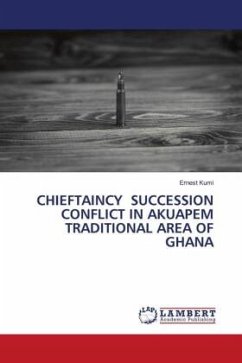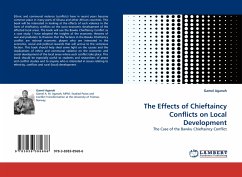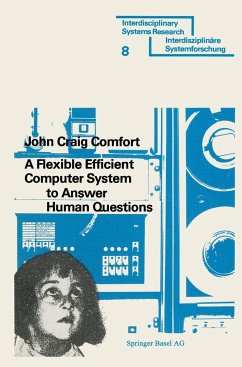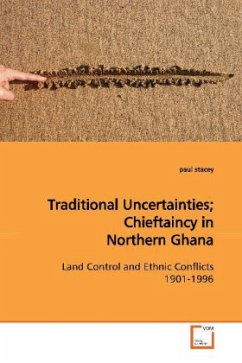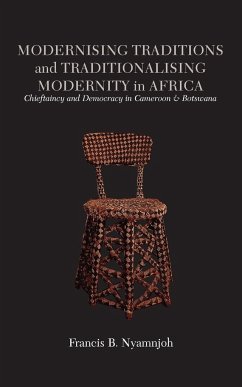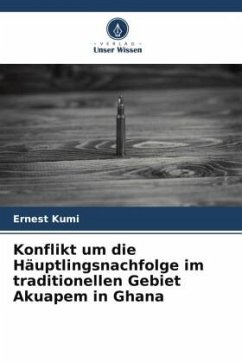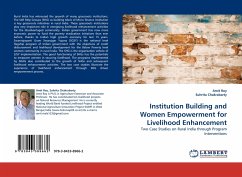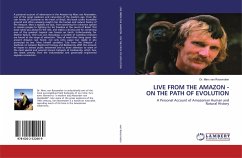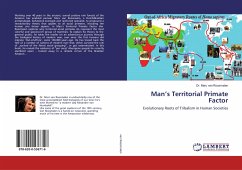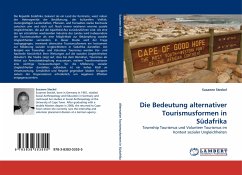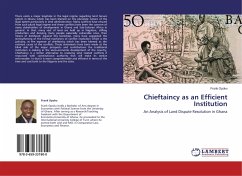
Chieftaincy as an Efficient Institution
An Analysis of Land Dispute Resolution in Ghana
Versandkostenfrei!
Versandfertig in 6-10 Tagen
36,99 €
inkl. MwSt.

PAYBACK Punkte
18 °P sammeln!
There exists a major loophole in the legal regime regarding land tenure system in Ghana which has been blamed on the pluralistic nature of the legal system particularly in land administration. Many conflicts have ensued from such plural legal regime and these conflicts have been the concern of many stakeholders of development in Ghana and Sub-Saharan Africa in general. In that, many vast of land are held up in litigation, stifling production and denying many people especially vulnerable ones, their means of livelihood. Against this backdrop, many have suggested the strengthening of the formal ...
There exists a major loophole in the legal regime regarding land tenure system in Ghana which has been blamed on the pluralistic nature of the legal system particularly in land administration. Many conflicts have ensued from such plural legal regime and these conflicts have been the concern of many stakeholders of development in Ghana and Sub-Saharan Africa in general. In that, many vast of land are held up in litigation, stifling production and denying many people especially vulnerable ones, their means of livelihood. Against this backdrop, many have suggested the strengthening of the formal machinery of conflict resolution which is the judiciary, at the expense of chieftaincy which has been blamed as the outmost cause of the conflicts. These statements have been made at the blind side of the major prospects and contributions the traditional institution is making in the socio-economic development of the country. Chieftaincy is a better alternative to resolving land related conflicts if resourced with constitutional authority that will make its verdict enforceable. In that it is more comprehensible and efficient in terms of the time and cost both to the litigants and the state.



